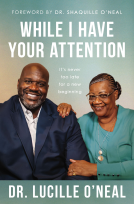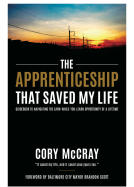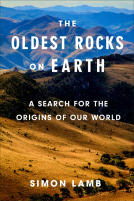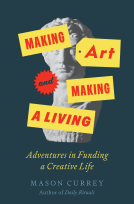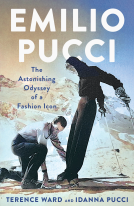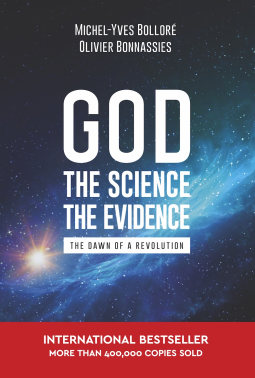
God, the Science, the Evidence
by Michel-Yves Bollore; Olivier Bonnassies
This title was previously available on NetGalley and is now archived.
Send NetGalley books directly to your Kindle or Kindle app
1
To read on a Kindle or Kindle app, please add kindle@netgalley.com as an approved email address to receive files in your Amazon account. Click here for step-by-step instructions.
2
Also find your Kindle email address within your Amazon account, and enter it here.
Pub Date Oct 14 2025 | Archive Date Nov 15 2025
Description
Read the European Blockbuster with 400,000 Copies Sold - Now in English for the First Time!
After four years of research in partnership with over twenty scientists and esteemed experts, this book explores one of the most significant questions we face: the existence or non-existence of a creator God.
For more than four centuries, the scientific discoveries of Copernicus, Galileo, Darwin, and Freud created the impression that we could explain the workings of the Universe without the idea of a creator--God. By the beginning of the twentieth century, materialism had become the dominant theory of the time. And yet, with unexpected and astonishing force, the pendulum of science has swung back in the other direction, owing to a rapid succession of discoveries: the theory of relativity; quantum mechanics; the Big Bang; the theories of expansion, heat death, and fine-tuning of the universe. This newly acquired knowledge has upended the certainties of the twentieth century collective consciousness. Once the only acceptable theory, materialism is increasingly considered an irrational belief.
The authors of this highly readable book retrace the fascinating history of these scientific breakthroughs and offer a rigorous overview of the new proof of the existence of God. God: the Science and the Evidence is an invitation to reflect and debate the place of God in science.
Advance Praise
"This book thus provides a strong, rational argument for the reality of a creator God that is very comforting to those with a scientific mindset. Highly recommended!"—Eben Alexander, MD, author of Proof of Heaven
"This book is a very good presentation of the development of the Big Bang theory and its impact on our beliefs and our representation of the world. . . . As the Big Bang theory suggests, if the Universe had a beginning, then we cannot avoid the question of creation."—Robert Wilson, Winner of the Nobel Prize in Physics for his discovery of Cosmic Microwave Background Radiation
"This book represents an innovation. It demonstrates that it is no longer ‘credible’ to pit science against faith. . . . [The book] widens our field of reasoning and is an invitation to wonder."—Cardinal Robert Sarah, Prefect Emeritus of the Congregation for Divine Worship and the Discipline of the Sacraments
Marketing Plan
- 3 kick off conferences - Princeton University, UC Berkeley, Cambridge
- 10-city US book tour, including NYC, San Francisco, Boston, LA, DC, & Chicago
- Film documentary release this fall
- Digital and print consumer advertising
- Extensive media campaign and podcast tour
Available Editions
| EDITION | Other Format |
| ISBN | 9789998782402 |
| PRICE | $28.00 (USD) |
| PAGES | 562 |
Available on NetGalley
Average rating from 20 members
Featured Reviews
This book gives a good analysis of the topic of god and belief in the viewpoint of science, philosophy and experienced life. The topics are well documented with quotations. The language and arguments are clear and follow an easy to follow layout. I liked that there were so many subheadings and subchapters used.
I especially liked the science discussion. I am familiar with the topic and would have wished for a little more details at points. But as the book is geared more towards the general population the topic was explored deep enough.
There were clear answers to questions asked.
If you are interested in the topic the book gives both, an overview and a deeper insight.
 Reviewer 1168388
Reviewer 1168388
“Certainly there was something that set it all off. Certainly, if you are religious, I can't think of a better theory of the origin of the universe to match with Genesis.” - Robert Wilson
Why is there something and not nothing? How did the Big Bang happen and what does it mean? Why did some of the most militant atheist thinkers become agnostic or even deist as they studied the Universe?
This book is a superb resource that uses physics and math primarily - as well as history and philosophy - to answer those questions. The scope of its research is truly astonishing. With the incredible amount of information they’ve armed themselves with, Bollore and Bonnassies argue that a preponderance of evidence makes belief in a Creator to be absolutely rational.
For me, the most riveting part of the book was learning about physicists and mathematicians who risked their livelihoods and even their lives to argue, in the face of Nazi and Soviet persecution, that the Universe HAD a beginning. That may not be “evidence” that there is a God, but it was so interesting and inspiring.
For the majority of the book, it does not advocate for or against a particular religion. The end of the book defends Christianity, Israel, and the existence of miracles, which may bother some readers. Other readers may be offended that the book does not take a strictly-literal view of a six-day Creation. The end of the book also focuses more on philosophy, which may interest fewer readers if they chose the book looking for more evidence in math/physics. Personally, I felt the discussion of the Problem of Evil wasn’t convincing yet, but that’s not the focus of this book.
This book has an unusual organization (one chapter is entirely devoted to quotes) but as someone without a background in physics or higher-level math, I found it very accessible. I highly recommend this book to religious people who want to bolster their faith, and to skeptics wise enough to consider the evidence for God.
Thank you to NetGalley and Palomar for the free eARC. I post this review with my honest opinions.
This review is cross-posted on Goodreads. It will be posted on Amazon and Instagram within one week of the book’s publication in English.
 Reviewer 294918
Reviewer 294918
God, the Science, the Evidence by Michel-Yves Bolloré and Olivier Bonnassies is a comprehensive argument for a creator God's existence, leveraging 20th-century scientific advances to challenge materialism. The book divides into three parts. Part One examines scientific evidence: thermodynamics' implication of the Universe's thermal death (proving a beginning), the Big Bang's confirmation, fine-tuning's improbability (dismissing multiverses), and biology's leap from inert to living matter. It includes quotes, portraying science as supporting theism. Part Two explores non-scientific rational evidence, including biblical truths, Jesus' identity, Jewish history, Fátima miracles, and philosophical proofs. The conclusion refutes materialist objections, labeling atheism irrational. The authors emphasize convergent, independent evidence for conviction beyond doubt, framing the debate as binary: creator or pure matter.
 Mike M, Media/Journalist
Mike M, Media/Journalist
This is a book that was sorely needed by Christians as well as practically anyone else who ever wondered about God and whether he/she exists. How many of us have ever wondered if there really is a God, and if so, why is it so hard to prove? This is the book for people with that question.
A well-researched and accessible exploration of science and spirituality. Blending historical context with modern discoveries, the book presents a case for the existence of a creator through a scientific lens. Thought-provoking and clearly written, it invites open-minded reflection on one of life’s biggest questions.
As a Christian, I enjoyed reading this. Looking at God through a scientific lens was extremely interesting.
Thank you NetGalley for the advance cooy
 Media/Journalist 157704
Media/Journalist 157704
You don't have to believe in God or have a scientific mind to become absorbed by God, the Science, the Evidence, a book co-authored by Michel-Yves Bollore and Olivier Bonnassies. The book, which is described as four years in the making, uses interviews with over 20 scientists and other experts to grapple with the question of whether or not there is a divine Creator. It seeks to answer: can science support the concept of God?
I found the evidence compelling, in this very readable book, for a rational belief in God. Highly recommended.
 Anna B, Reviewer
Anna B, Reviewer
This book is an easy to read, well researched resource that looks into creation and the evidence of God through the lens of science. Rather than separate science and religion it shows the evidence that there is an intelligent design to the universe, not a random accidental occurrence.
From historical observation and opinion, to Nazi persecution, to modern science the research is clearly laid out revealing rational evidence of the creation theory.
As a Christian I appreciate the confirming of many of our beliefs into one comprehensive and highly engaging book. I received a copy courtesy of Palomar. This is my honest opinion of the book.
This is a fascinating book. I especially like the way the curve shows science moving from a "there is no God" list of discoveries, to the new discoveries that curve back toward actually being a God/creator. I enjoyed the historical aspects of the science as well as a discussion of all the recent science discoveries in an easy-to-understand manner. I would probably recommend the hard copy so as to see the graphs easier than the e-version, but you would get the information from either source. Thank you to NetGalley and the publisher for an ARC.
 Joan N, Reviewer
Joan N, Reviewer
I have read scores of book on the topic of science and creation and have never encountered one with this amount of convincing information and having it presented in such a helpful way. The authors are thorough in both the areas of presenting the evidence and in reviewing the history behind various ideas concerning the origin of the universe. They also explore the consequences of the opposing viewpoints, God as Creator opposed to total materialism. The book is full of helpful illustrations and charts.
The authors take us through cosmological discoveries that led to the Big Bang theory. I was surprised at the political opposition to it, especially in Russia. We also read an extensive explanation of the Anthropic Principle, the fine tuning of the universe for the existence of man. The authors investigate evidence from biology as well as philosophy. They also clarify some of the misunderstandings from the Bible.
There will never be absolute proof of God as Creator but these authors present so much proof it is compelling. I highly recommend this book to those seeking to make a decision about the origin of the universe and the life it contains.
I received a complimentary egalley of this book from the publisher. My comments are an independent review.
I loved the layout of the book—it’s informative, yet easy to get through. As a scientist and practicing Christian, I found it enriching both my intellectual curiosity and my faith. Unfortunately, the Kindle version displays horizontally, which made it difficult to read on my preferred device. That said, I’ll definitely be sharing this with other scientists who are faith-curious!
This book really is a superbly researched and thorough explanation of this topic. The relationship between science and faith has, over the last century or so, been seen as difficult, with each other's views being irreconcilable. But for centuries before this it had not really been the case, and nor should it be. This book explains clearly (helpful to non-scientific minds like mine) the theories behind the science and how they in fact can be seen to work "hand in glove" with the Christian beliefs. There is also some very revealing history of scientific thinking and theories, which provide a fascinating framework. It is written by scientists, who are looking for evidence and proof, and so presents some very credible explanations to some of the more challenging questions we may have about the created universe.
 Eddie G, Reviewer
Eddie G, Reviewer
This is a book that everyone who works on a college or university campus should read. It might be a bit technical but it is worth fighting through the intellectual deep grass to discover the truths presented by the authors. I highly recommend this work for everyone who has friends or colleagues who think that science and faith are incompatible.
 Educator 987175
Educator 987175
Thanks to the publisher and NetGalley for letting me review this book. This was an informative read with plenty of information. The Earth is too precise and minute in the gases that make up the Earth to just appear. If the hydrogen, oxygen, etc… were .00000009 etc off, life wouldn’t exist. Even space and deep space has order to it; it’s not chaotic. It’s amazing to think that life and space is so precise.
 Jo B, Reviewer
Jo B, Reviewer
This book had many excellent qualities most of which was examining the evidence for God, as stated in the title. Science does support this supposition - astronomy, physics, biology and so does philosophy. So why did I only give it 3 stars? It just plods along. It bogs down in repetitive detail. If the book had been tighter it would have certainly gotten a much higher rating. Still, it’s a very valuable read and one I would recommend.
Thank you to NetGalley for an advanced reader’s copy for an honest opinion. The formatting on this arc was REALLY bad. It looked like it was a picture that was split on two pages. It made reading awkward.
Readers who liked this book also liked:
Scott Michael LeRette
Biographies & Memoirs, Christian, Parenting, Families, Relationships
